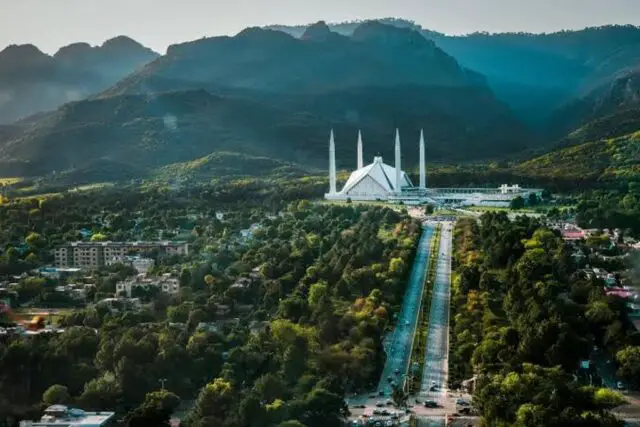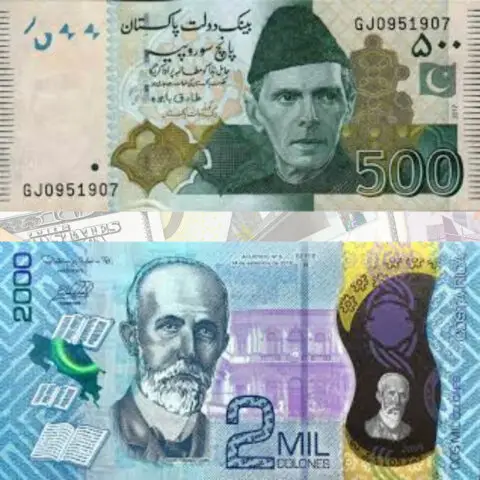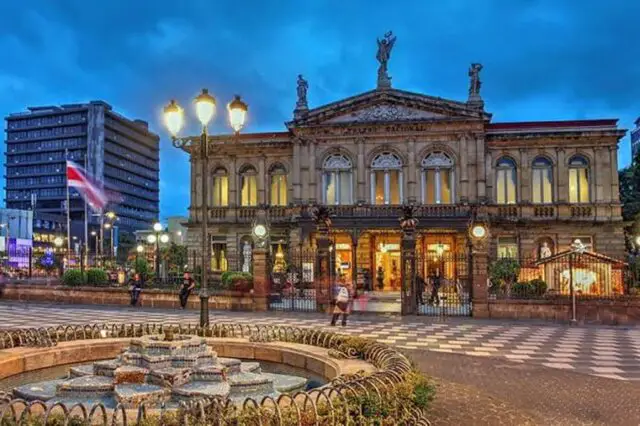The importance of multilateral forums cannot be emphasized in the ever-changing landscape of international relations. These platforms offer as a compelling demonstration of the power of global collaboration. Amidst the complex choreography of global affairs, there exists a stage that captivates the attention of nations like no other—the United Nations (UN). In the illustrious halls of this esteemed establishment, where nations of all sizes convene, we bear witness to the captivating spectacle of global diplomacy, unfolding before our very eyes in all its majestic splendor.
In this captivating piece, we embark on a profound journey to unravel the intricate narratives that intertwine Pakistan and Costa Rica within the esteemed corridors of global diplomacy. We are now entering a field where facts and data are more than just statistics, since they have the capacity to affect the very fabric of diplomatic history.

HISTORICAL CONTEXT:
The establishing of diplomatic relations between Pakistan and Costa Rica in 1972 was a momentous event that transcended the sphere of regular diplomatic niceties in the larger scenario of the changing world diplomacy. It was an event in world politics, a chapter that added richness to the greater saga of Cold War politics and the rise of the Non-Aligned Movement.
Diplomacy became a critical tool for governments during the chaotic Cold War period, when global powers were on the edge of geopolitical conflict. With high stakes and strong emotions, nations were compelled to masterfully navigate the hazardous waters of alliances and allegiances. Pakistan, situated at the intersection of South Asia, Central Asia and the Middle East, and Costa Rica, located in the central region of Central America, have initiated a process of strategic realignment.
The United States and the Soviet Union two superpowers of that time, kept fighting with each other a brutal war for domination and control over the region and World on larger scale during the turbulent period. Due to this extreme rivalry and competition between these giants it affected the dynamics of international relations throughout the World.The relationships between nations often encountered critical junctures as a result of competitions among global powers, necessitating a choice between aligning with a major superpower or adopting a posture of non-alignment in their particular contexts.
Amidst the perpetual and ongoing competition for power and influence among nations on a global scale, the Non-Aligned Movement (NAM) emerged as a source of optimism. The aforementioned growth may be ascribed to the proficient leadership shown by Prime Minister Zulfiqar Ali Bhutto. Pakistan has garnered global recognition as a result of its steadfast dedication to these commendable ideals. Under Prime Minister Bhutto’s leadership, Pakistan openly championed non-alignment ideas, refusing to unite with any major power bloc throughout the Cold War period. This uncompromising attitude enabled Pakistan to retain its sovereignty and independence, free of foreign interference.Prime Minister Bhutto’s commitment to non-alignment and the rights of smaller nations not only elevated Pakistan’s standing in the driving force behind this advocacy stemmed from an unwavering dedication to upholding sovereignty and independence in a global landscape.
In a striking parallel, Costa Rica, a country renowned for its deep-rooted democratic values and commitment to peaceful coexistence, discovered itself firmly embracing the principles of non-alignment under the leadership of Jose Trejos Fernandez.

The year 1972 marked a significant milestone in the diplomatic landscape as Pakistan and Costa Rica forged a bond that surpassed the usual formalities of diplomatic niceties. The recent display of unity among nations was truly remarkable, serving as a powerful testament to the enduring principles of sovereignty, non-alignment, and the unwavering commitment to actively participate in global affairs while safeguarding individual national autonomy.
Pakistan’s Role in the United Nations:
Let’s dive into Pakistan’s engagement with the United Nations (UN), marked by active participation and a strong commitment to the UN’s core principles. Since gaining independence in 1947, Pakistan has regarded the UN as a crucial platform to shape its foreign policy and promote global peace and cooperation.
One remarkable aspect of Pakistan’s UN involvement is its consistent contribution to peacekeeping missions. Pakistan consistently ranks among the top contributors of troops and personnel to UN peacekeeping operations, demonstrating its unwavering dedication to global peace and security.
Furthermore, Pakistan actively participates in many United Nations (UN) entities and committees, such as the General Assembly, the Security Council, and specialized organizations like UNESCO. The aforementioned engagements exemplify Pakistan’s overarching goals of promoting global peace, security, prosperity, and human rights.
Costa Rica’s Engagement with Multilateral Organizations:
Shifting our focus to Costa Rica, we encounter a nation that embodies principled and dedicated multilateral diplomacy. Costa Rica prioritizes peace, democracy, and human rights as key focal points in its multinational undertakings.
Within the United Nations system, Costa Rica is a staunch supporter of human rights.The United Nations isn’t the only international organization in which Costa Rica is active; other groups, such as the Organization of American States and the Community of Latin American and Caribbean States, demonstrate the country’s worldwide engagement. In these forums, Costa Rica tirelessly works to promote cooperation and harmony in the Western Hemisphere and beyond.
In essence, both Pakistan and Costa Rica approach their roles within the United Nations and other international organizations with distinct yet complementary objectives. Pakistan’s contributions to peacekeeping and active participation in various UN bodies align with its commitment to global peace and development. Conversely, Costa Rica’s engagement centers on critical issues like environmental protection, disarmament, and human rights, illustrating its dedication to upholding universal values on the world stage. Together, they paint a vibrant portrait of diplomacy in the global arena.
Collaborations and Interactions:
In the intricate realm of the United Nations (UN), Pakistan and Costa Rica have found occasions to forge partnerships and engage in interactions that reflect the art of international diplomacy. While these instances may not always make headlines, they are integral to the diplomatic fabric that shapes global governance.
Within the UN, Pakistan and Costa Rica have collaborated on multiple fronts. They have joined forces in support of sustainable development goals (SDGs), recognizing the urgency of addressing global challenges like poverty, inequality, and climate change.
Joint endeavors in peacekeeping missions have also been a notable facet of their cooperation. Both nations have contributed troops and resources to UN peacekeeping efforts in different parts of the world, underscoring their dedication to international peace and security.In addition to practical cooperation, Pakistan and Costa Rica have made their voices heard through notable speeches, resolutions, and initiatives within the UN.

Challenges and Opportunities:
However, it is not without challenges that these collaborations unfold. The UN’s vast and diverse membership, with varying priorities and interests, can pose hurdles to seamless cooperation. Navigating through geopolitical complexities and differing perspectives on global issues requires diplomatic finesse and adaptability.
Yet, amid these challenges lie significant opportunities for Pakistan and Costa Rica. As global politics continue to evolve, both nations have the chance to play an increasingly influential role on the international stage. They can leverage their shared values and goals to foster new partnerships and initiatives that address pressing global challenges.
Conclusion:
In conclusion, the diplomacy of nations within multilateral forums like the UN is a nuanced and dynamic endeavor. Pakistan and Costa Rica, despite their geographical distance and differing contexts, have found common ground and collaborative potential within this intricate diplomatic landscape.
As we look ahead, it becomes clear that the roles of Pakistan and Costa Rica within the UN are not static but evolving but they need to take it to next level. There is a lot of potential in both nations to improve, evolve and develop. First thing first you need to take steps one by one. Both nations should first start their diplomatic ties with the establishment of Embassies in both countries and send representatives there so the bond can be people to people, business could be people to people, development could be nation to nation all along together in the better and prosperous future. Hopefully both Governments will consider this and hope to see the embassies and representatives of these nations in each other countries.
Pakistan Zindabad! Pura Vida!

Abdul Rafay Afzal is a law student at Liverpool John Moores University, UK. He writes perceptive columns on geopolitics, international relations, and legal affairs etc. providing unique insights into the global landscape in different National and International Newspapers and Media outlets in English & Urdu languages. Email:[email protected] Instagram: @arafzal555

